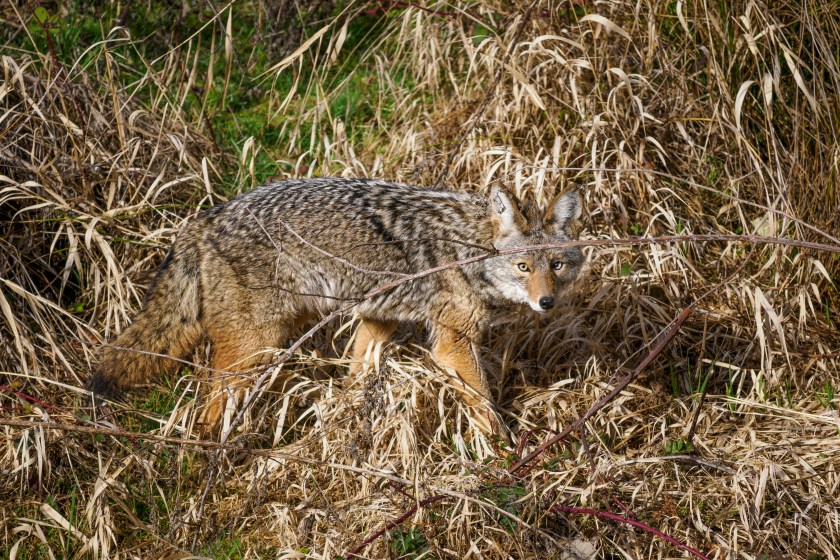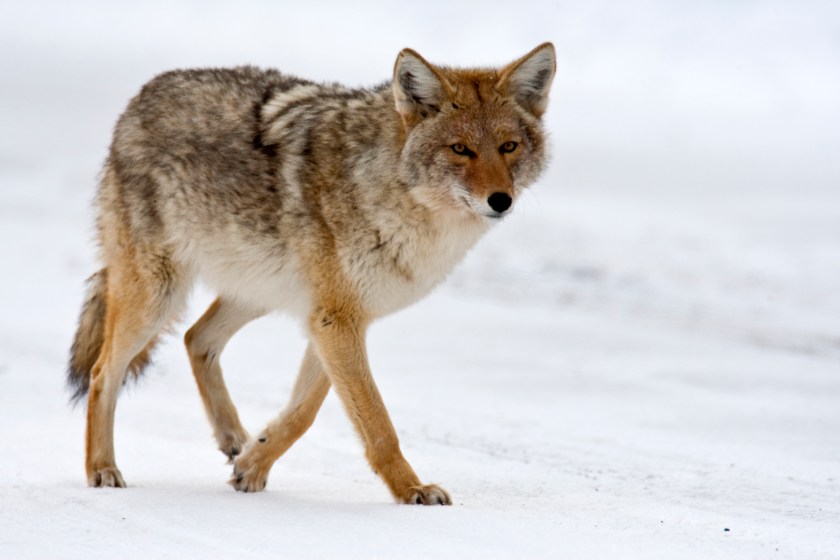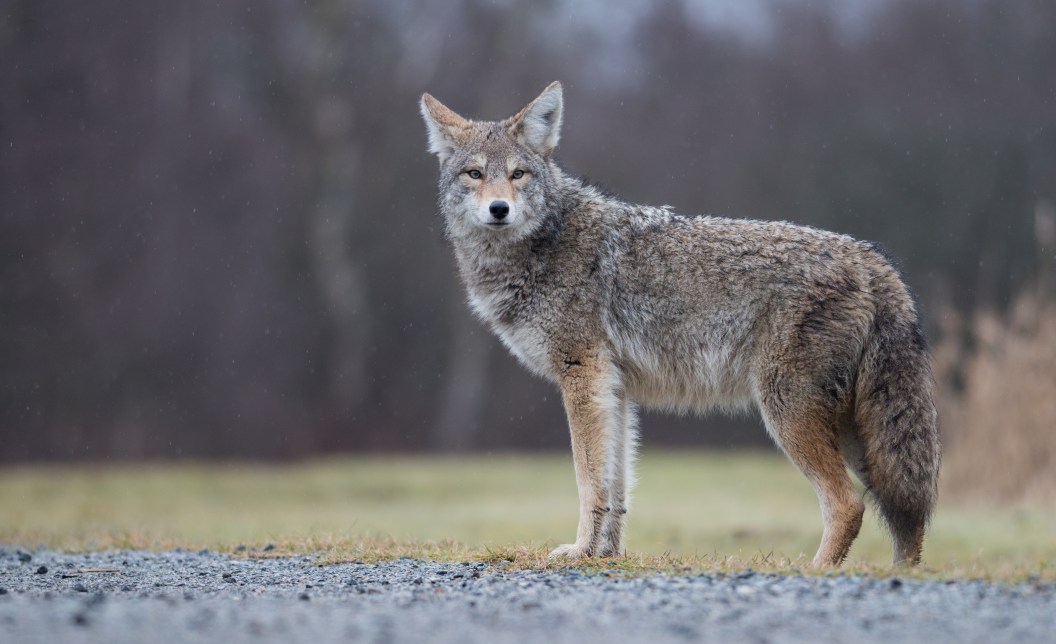The Oregon Fish and Wildlife Commission has banned hunting contests that target coyotes and other unprotected species following a public hearing in Bend.
The new law better defines 'hunting contests' as competitions during which teams of hunters target coyotes, sometimes using night vision goggles, thermal imaging, and electronic devices that sound like small prey to lure the animals in. In these, prizes are awarded for the biggest and smallest animals killed, as well as the number of animals killed.
Under the new law, it's illegal to organize, sponsor, participate in, or conduct contests with the aim of killing unprotected mammals indigenous to Oregon.
Coyote killing contests like the Harney County Coyote Classic have been held in Burns, Oregon for years, and routinely draw up to 500 hunters and their families, providing an economic boost to the area. While supporters of killing contests say that coyote contests help control coyotes' population and prevent them from killing livestock, numerous studies show that science does not support these claims.
The generic public isn't a fan of the hunting contests, but neither are many hunters, like Michael Finley, the former chair of the Wildlife Commission, who stated that the contests were "antithetical to the concepts of sportsmanship and fair chase."
Other coyote hunting regulations in the state are unaffected by the new ban.
Killing Contest Controversies

GarysFRP, Getty Images
There isn't much, if any, evidence to show that these hunting contests actually help control coyote populations or that they prevent the stealthy animals from killing livestock. In fact, some research, including that conducted by the United States Department of Agriculture, shows that killing numerous coyotes causes the population to breed even more. One older study showed that when coyotes were removed, they were replaced by nearby coyotes within just a few weeks. In the words of one lead study author, Debra Merskin at the University of Oregon, "killing coyotes is kind of like mowing the lawn, it stimulates vigorous new growth."
Rather, non-lethal methods of control, such as fencing and guard animals, are proven to be more effective for maintaining livestock numbers.
Hunting contests have also generally been received poorly by the public, with pictures of competitors posing with piles of dead animals stoking anti-hunting sentiments. Over 40 people testified at the public hearing to ban coyote killing contests in Oregon, and according to the Salem Reporter, the majority of them supported the ban, including hunters like Michael Finley, the former chair of the Wildlife Commission, who called the contests "antithetical to the concepts of sportsmanship and fair chase."
Others commented on the fact that banning hunting contests had nothing to do with protecting coyotes since state statutes still allow for open season and no bag limits. Instead, the issue, according to some like Paul Donheffner, the legislative chairman of the Oregon Hunters Association, is "really about bullying by well-organized animal rights organizations who seek to tell eastern Oregon citizens how to live. It has almost nothing to do with protecting coyotes, which [can] still be killed 24-7, every day of the year under the proposed bills and under this rulemaking. The only thing this rule does is say you can't have any fun doing so."
Oregon State Law Still Keeps Coyote Hunting Largely Unregulated

thejack, Getty Images
The Oregon Fish and Wildlife Commission was first petitioned to outlaw coyote killing contests in 2022. The petition was denied, but the Commission said it would develop new rules to stop coyote killing contests that were in line with its regulatory authority.
Under state statutes, the Oregon Fish and Wildlife Commission does not have the authority to regulate the hunting of predatory animals, defined by the state as potentially destructive to agricultural crops, products, and activities. Predatory species in Oregon include coyotes, rabbits, rodents, feral swine, starling, house sparrows, and Eurasian collared doves.
State law denotes that "the [Fish and Wildlife] Commission shall not prescribe limitations on the times, places, or amounts for the taking of predatory animals" and affirms that "nothing in the wildlife laws is intended to deny the right of any person to control predatory animals."
Because of these regulatory limitations, the new ban doesn't prohibit contests on private land and doesn't restrict hunters and ranchers from hunting animals classified as predatory, such as coyotes. Existing regulations in Oregon allow for year-round hunting of coyotes with unlimited bag limits.
Wildlife killing contests are currently legal in more than 40 US states, on both public and private lands. They remain controversial in many states.
READ MORE: Poaching in Oregon Has Gotten So Bad, the State is Doubling Rewards for Info on Culprits




